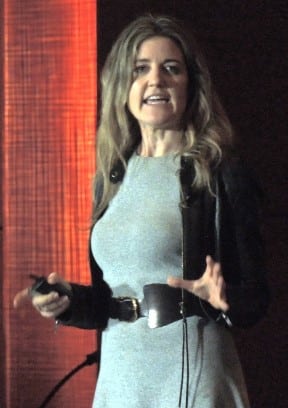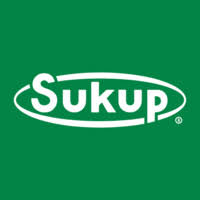ICREA Expo keynote speaker Greenberg discusses Gen Z customers, AI and metaverse

Michael Crumb Oct 11, 2023 | 7:26 am
4 min read time
1,061 wordsAll Latest News, Real Estate and DevelopmentNikki Greenberg, futurist and thought leader in the real estate industry, was a keynote speaker during the recent Iowa Commercial Real Estate Association Expo in Des Moines.
Greenberg, who began her career as an architect and urban designer, covered four topics — future customers, real estate in the metaverse, artificial intelligence and humans, and future visions — during her presentation at the Iowa Events Center on Sept. 28.

Here are some of the highlights of her presentation:
Future customers
Greenberg said if a company wants to be attractive to a Generation Z employee or customer, it needs to act like someone from the Gen Z generation.
She said baby boomers and other generations before Gen Z will be moving out of the workforce, meaning that Gen Z and millennials will make up 75% of the workforce.
“So they are a force to be reckoned with and they simply cannot be ignored … so you have to get to understand them pretty well,” Greenberg said.
People in the Gen Z generation spend an average of 10 hours a day on their devices, and 85% say they rely on social media to make purchase decisions. Half of the Gen Z generation watches YouTube to teach themselves something, Greenberg said. They also have an eight-second attention span, and more often go to TikTok than Google, she said.
“If you want to be able to think like a Gen Zed, you need to act like a Gen Zed. Spend more time on your devices and go to the places they are looking,” Greenberg said.
People in the Gen Z generation will change jobs 10 times, she said. Of those, 41% are entrepreneurs, 42% prioritize benefits over salary and 75% prefer hybrid or remote working environments.
“This is going to stick around,” she said. “When you’re talking about the future of the workplace, we’re talking about a very transient workforce that has different values.”
Greenberg said companies will need to create more welcoming, comfortable places that are often nicer than home if they hope to bring Gen Z workers into the office.
One interesting statistic Greenberg shared was that 90% of Gen Z workers want to come to the office, citing increased productivity. But only 8% like the open office plan, saying it’s not productive for them to work.
Greenberg said clean offices boost productivity by 11%, and there is a 50% increase in cognitive ability when offices are well ventilated.
“Make it part of the marketing of space to say, ‘Yes, we have good quality air [and] it is worth coming in,’” she said.
Real estate in the metaverse
Greenberg said companies like L’Oreal, Gucci and Nike have already created the technology to have transactions in the metaverse. That technology allows for big transactions and auctions, which can be a tool used in real estate, she said.
“Metaverse mortgages already exist,” she said.
Greenberg said the first metaverse mortgage came out in 2022. It was a $50,000 loan with a two- to three-year term.
“They don’t even have a real headquarters,” she said. “They just have this virtual building, and nobody knows who the people are behind it. It’s only the virtual versions of themselves.”
She said some properties in the metaverse are tracking $60,000 a month in rent with a 70% profit margin.
“So, yes, it’s lucrative,” Greenberg said. “It’s not a competitor to commercial real estate, but the metaverse is spoken about in the language of real estate. So if you’re an innovator, you may want to look at how you can be a metaverse landlord or mortgage broker or whatever it is because there’s opportunities for those who have the appetite.”
There are also events in the metaverse, such as Fashion Week and Christmas markets, she said. A virtual New Year’s Eve party drew more than 3 million guests, she said.
“So when these events happen they need space, they need someone to build it,” Greenberg said. “So the same way we interact in the physical world, this interaction is happening in the virtual world as well.”
AI and humans
Greenberg compared the development of AI to a toddler.
“It’s young. It’s clumsy,” she said. “What does that mean? It means we need to give it good nutrition, good quality data. You need to supervise it. You need to teach it the difference between right and wrong, so you need to eliminate bias. It needs to be taught things.”
The good news about AI, Greenberg said, is that AI “loves to do work, which is repetitive, dull and dangerous. It’s the same work that we don’t like to do, which is wonderful.”
In commercial real estate, AI can talk about size, attributes and description of the property, but it may also add or omit information, she said.
“In terms of speed, it was able to do something quite quickly that somebody could come in and tweak quite easily,” Greenberg said. “So there’s a place for it in terms of speed and tweaking, but it’s young, clumsy and learning and doesn’t have all the information.”
AI can also be trained on simple tasks to answer questions, which can help with property management, she said.
Greenberg also said AI can be used to enhance customer relations management, off-site construction and help make buildings more efficient.
“Advancements in AI are game changing,” she said. “The world is going to change over again as AI comes into being. We just need to realize that the world is changing around us and there are opportunities that we can embrace by changing along with it.”
Future visions
Greenberg said cities around the world have plans for what they will look like in the future, much of it revolving around connectivity and technology.
These include things like making business districts a 24/7 destination with investments in theater and entertainment to grow a nighttime economy; investments in public transportation to make sure people can get to work; and improving interagency communications so if one utility is working in a location, another utility will know about it.
“There are different visions where cities might be going,” Greenberg said.
She said it’s important to talk about what “we don’t have and what could be coming.”
While technology like smartwatches, smart televisions, robot vacuums and other gadgets already exist, “We still have a ways to go as a society. There’s still space for innovation,” she said.
“We do have an obligation to make sure that the world we’re creating today is going to be sustainable for generations to come, which does mean being more tech focused,” Greenberg said.

Michael Crumb
Michael Crumb is a senior staff writer at Business Record. He covers real estate and development and transportation.









